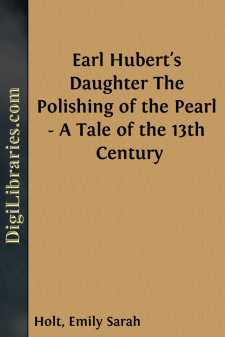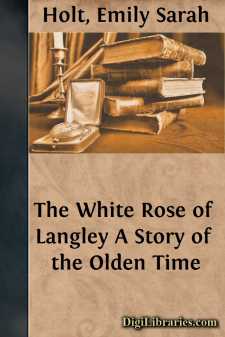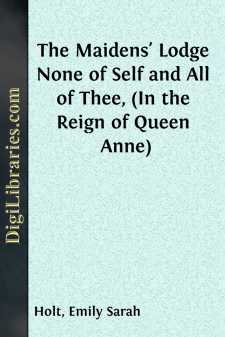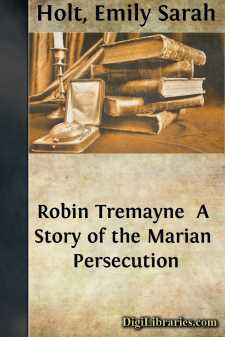Categories
- Antiques & Collectibles 13
- Architecture 36
- Art 48
- Bibles 22
- Biography & Autobiography 815
- Body, Mind & Spirit 144
- Business & Economics 28
- Children's Books 18
- Children's Fiction 14
- Computers 4
- Cooking 94
- Crafts & Hobbies 4
- Drama 346
- Education 58
- Family & Relationships 59
- Fiction 11835
- Games 19
- Gardening 17
- Health & Fitness 34
- History 1378
- House & Home 1
- Humor 147
- Juvenile Fiction 1873
- Juvenile Nonfiction 202
- Language Arts & Disciplines 89
- Law 16
- Literary Collections 686
- Literary Criticism 179
- Mathematics 13
- Medical 41
- Music 40
- Nature 180
- Non-Classifiable 1768
- Performing Arts 7
- Periodicals 1453
- Philosophy 65
- Photography 2
- Poetry 896
- Political Science 203
- Psychology 44
- Reference 154
- Religion 515
- Science 126
- Self-Help 85
- Social Science 83
- Sports & Recreation 34
- Study Aids 3
- Technology & Engineering 60
- Transportation 23
- Travel 463
- True Crime 29
Our website is made possible by displaying online advertisements to our visitors.
Please consider supporting us by disabling your ad blocker.
Clare Avery A Story of the Spanish Armada
by: Emily Sarah Holt
Categories:
Description:
Excerpt
Little Clare’s first home.
“The mossy marbles rest
On the lips he hath pressed
In their bloom,
And the names he loved to hear
Have been carved for many a year
On the tomb.”
Oliver Wendell Holmes.
“Cold!” said the carrier, blowing on his fingers to keep them warm.
“Cold, bully Penmore!” ejaculated Hal Dockett,—farrier, horse-leech, and cow-doctor in ordinary to the town of Bodmin and its neighbourhood... “Lack-a-daisy! thou that hast been carrier these thirty years, and thy father afore thee, and his father afore him, ever sith ‘old Dick Boar’ days, shouldst be as hard as a milestone by this time. ’Tis the end of March, fellow!”
Be it known that “old Dick Boar” was Mr Dockett’s extremely irreverent style of allusion to His Majesty King Richard the Third.
“’Tis the end of as bitter a March as hath been in Cornwall these hundred years,” said the carrier. “Whither away now, lad?”
“Truly, unto Bradmond, whither I am bidden to see unto the black cow.”
“Is it sooth, lad, that the master is failing yonder?”
“Folk saith so,” replied Hal, his jocund face clouding over. “It shall be an evil day for Bodmin, that!”
“Ay so!” echoed the carrier. “Well! we must all be laid in earth one day. God be wi’ thee, lad!”
And with a crack of his whip, the waggon lumbered slowly forward upon the Truro road, while Dockett went on his way towards a house standing a little distance on the left, in a few acres of garden, with a paddock behind.
About the cold there was no question. The ground, which had been white with snow for many days, was now a mixture of black and white, under the influence of a thaw; while a bitterly cold wind, which made everybody shiver, rose now and then to a wild whirl, slammed the doors, and groaned through the wood-work. A fragment of cloud, rather less dim and gloomy than the rest of the heavy grey sky, was as much as could be seen of the sun.
Nor was the political atmosphere much more cheerful than the physical. All over England,—and it might be said, all over Europe,—men’s hearts were failing them for fear,—by no means for the first time in that century. In Holland the Spaniards, vanquished not by men, but by winds and waves from God, had abandoned the siege of Leyden; and the sovereignty of the Netherlands had been offered to Elizabeth of England, but after some consideration was refused. In France, the Massacre of Saint Bartholomew, nearly three years before, had been followed by the siege of La Rochelle, the death of the miserable Charles the Ninth, and the alliance in favour of Popery, which styled itself the Holy League. At home, gardeners were busy introducing the wallflower, the hollyhock, basil, and sweet marjoram; the first licence for public plays was granted to Burbage and his company, among whom was a young man from Warwickshire, a butcher’s son, with a turn for making verses, whose name was William Shakspere; the Queen had issued a decree forbidding costly apparel (not including her own); and the last trace of feudal serfdom had just disappeared, by the abolition of “villenage” upon the Crown manors....












